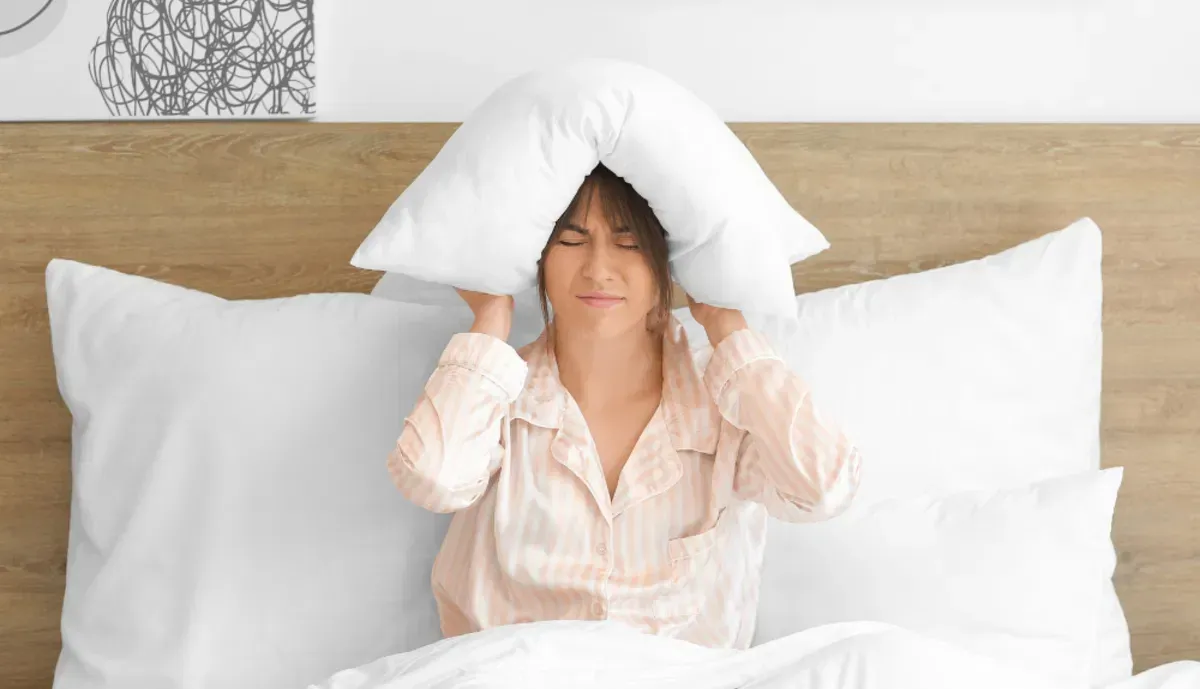Attention: Pittsburgh Dental Sleep Medicine no longer offers jaw joint treatments (TMD). We only offer sleep apnea oral appliances. Click HERE for our trusted providers.
Need a CPAP Alternative? Call: 724-935-6670
OFFICE PHONE: 724-935-6670
Sleep and Emotional Wellness: Addressing Sleep Disorder Breathing

Good sleep is key to emotional wellness. When you sleep well, your moods improve, and you can handle stress better. But when you have trouble sleeping, it can make you feel down and anxious. Understanding this link is important for overall health.
Sleep disorder breathing, such as obstructive sleep apnea (OSA), can disrupt sleep and lead to emotional issues. OSA is when breathing stops and starts during sleep. This can lead to poor sleep quality and tiredness during the day. If left untreated, it can affect your mental health and emotional wellness.
Addressing sleep disorder breathing can improve both your sleep and emotional health. By learning about these disorders and their symptoms, you can find ways to improve your sleep. It's important to seek help from specialized experts. They can provide treatments that don't involve CPAP machines, making it easier to manage your condition and improve your quality of life.
The Connection Between Sleep and Emotional Wellness
Sleep plays a crucial role in maintaining emotional wellness. When you get enough sleep, your brain can process emotions better, leading to improved mood and mental health. Lack of sleep, on the other hand, can contribute to feelings of irritability, anxiety, and even depression. It's essential to understand how sleep and emotions are connected to promote overall health and happiness.
Sleep helps regulate the body's stress response. When you sleep well, your body can handle stress more effectively. However, if you don't get enough rest, your body may produce more stress hormones, which can make you feel anxious and overwhelmed. Over time, poor sleep can lead to chronic stress, further impacting your emotional wellness.
Another important aspect is the impact of sleep on cognitive function. Quality sleep improves focus, decision-making, and memory. When sleep is disrupted, it can lead to difficulties in concentrating and making decisions, which can cause frustration and stress. By prioritizing good sleep habits, you can support your emotional well-being and better manage daily challenges.
Identifying Symptoms of Sleep Disorder Breathing
Sleep disorder breathing includes conditions like obstructive sleep apnea (OSA), which can significantly disrupt your rest. Recognizing the symptoms of these disorders is the first step toward effective treatment. Common signs of sleep disorder breathing include loud snoring, gasping for air during sleep, and frequent awakenings.
Other symptoms may not be as obvious. For example, you might experience daytime sleepiness, even after a full night's rest. This constant fatigue can affect your mood, making you feel more irritable or anxious. Some people with sleep disorder breathing also have morning headaches or dry mouth upon waking.
It's important to note that children can also be affected by sleep disorder breathing. Symptoms in kids may include bedwetting, difficulty concentrating, and hyperactivity. If you or a loved one shows any of these signs, seeking help from a specialist can lead to better sleep and improved emotional wellness. Recognizing these symptoms can make a big difference in your quality of life.
Non-CPAP Treatments for Sleep Disorder Breathing
For those struggling with sleep disorder breathing, CPAP machines are not the only option. There are effective non-CPAP treatments available that can help you breathe better during sleep. One popular choice is oral appliance therapy. These customized devices fit in your mouth like a sports mouthguard and help keep your airway open while you sleep. They are easy to use and comfortable, making them a great alternative.
Lifestyle changes can also play a significant role in managing sleep disorder breathing. Losing weight, avoiding alcohol and smoking, and sleeping on your side instead of your back can reduce symptoms. These simple adjustments can make a big difference in improving your sleep quality.
Certain exercises can strengthen the muscles around your airway, helping to reduce the severity of sleep disorder breathing. These exercises include specific throat and tongue movements that promote better muscle tone and support. By exploring these various treatments, you can find a plan that works best for you, leading to better sleep and emotional wellness.
Finding Specialized Help for Sleep Disorder Breathing in Monroeville
When it comes to treating sleep disorder breathing, finding the right specialist is key. Monroeville offers access to experts who can provide personalized care tailored to your needs. These specialists focus on non-CPAP treatments, ensuring you have options that suit your lifestyle and preferences.
Searching for a specialist who has experience in treating obstructive sleep apnea and chronic snoring is important. These professionals use the latest techniques and tools to diagnose and manage your condition effectively. Asking about their success rates and treatment options can help you make an informed decision.
Support groups and community resources can also provide valuable information and emotional support. Connecting with others who face similar challenges can offer insights and encouragement. By finding specialized help in Monroeville, you can take the first step toward better sleep and improved emotional wellness.
Conclusion
Emotional wellness and quality sleep go hand in hand. Addressing sleep disorder breathing is crucial for overall health and happiness. By recognizing the symptoms and exploring various non-CPAP treatments, you can find effective solutions that improve your sleep and emotional well-being.
If you struggle with obstructive sleep apnea or chronic snoring, it's time to take action. Look no further than Pittsburgh Dental Sleep Medicine to learn more about CPAP alternatives that can enhance your sleep and boost your emotional health. Don't let sleep disorder breathing control your life—reach out to us today to start your journey toward better sleep and well-being.
Share On Social Media
Quick Links
All Rights Reserved | Pittsburgh Dental Sleep Medicine

